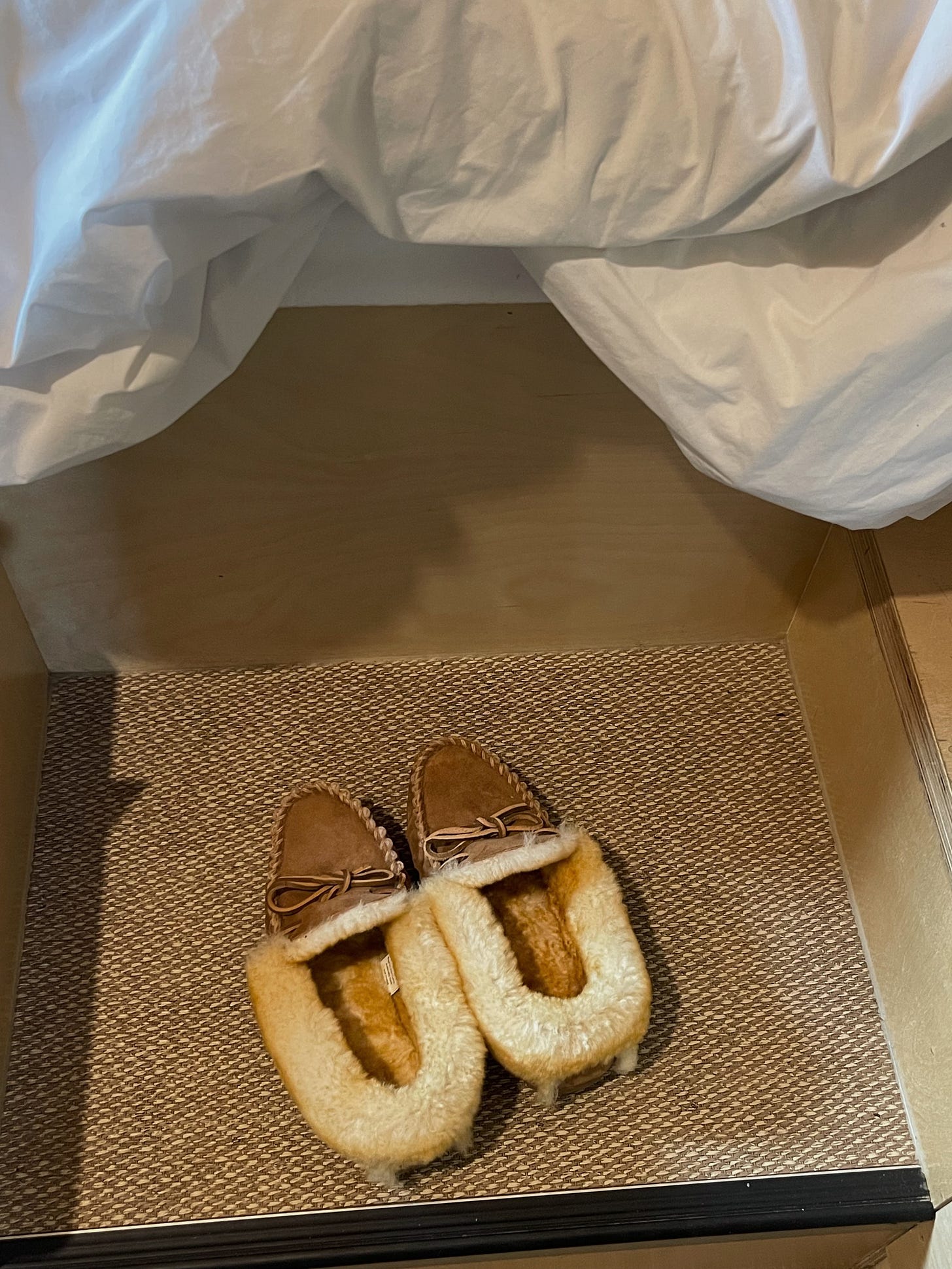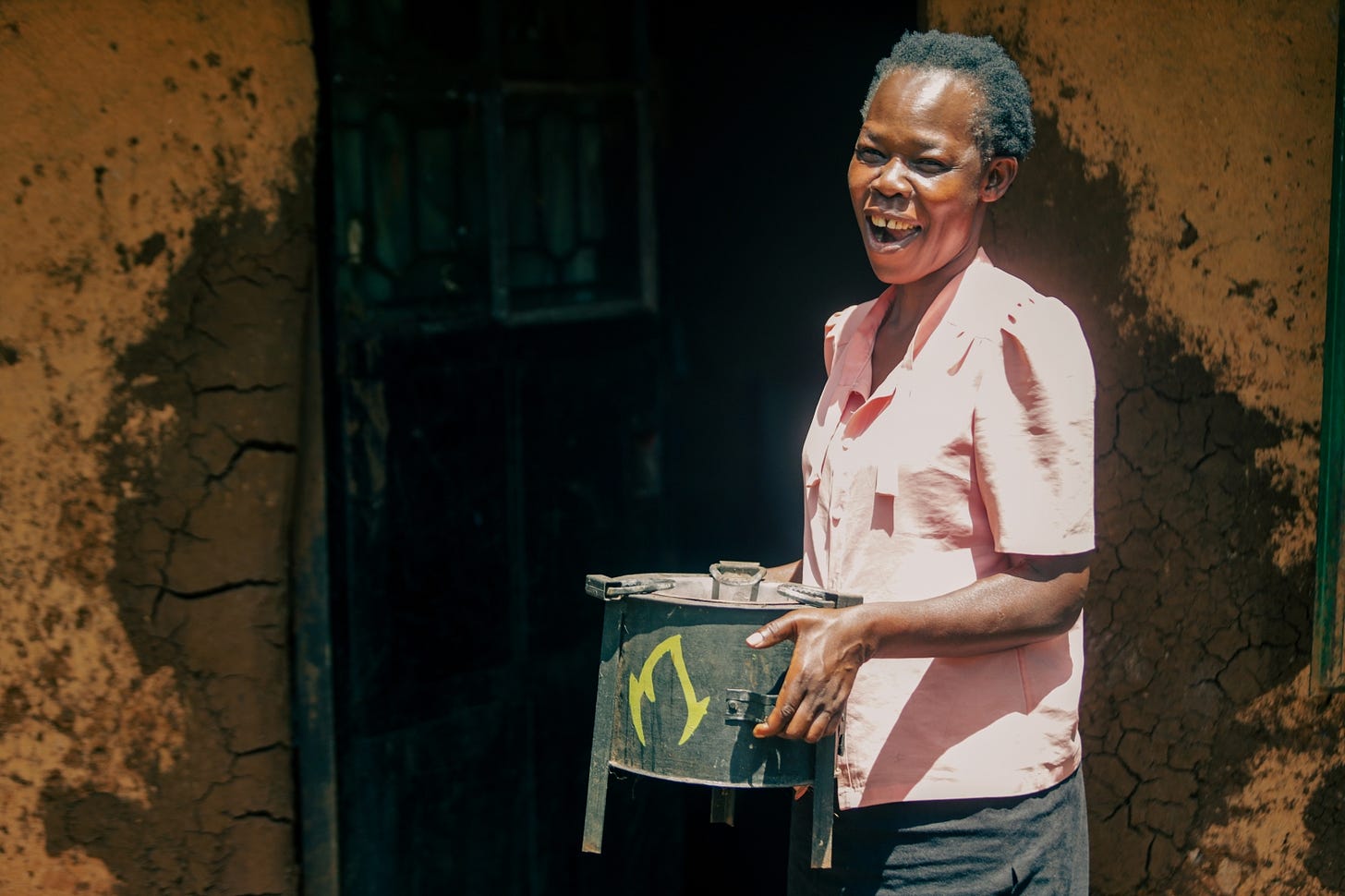ThredUp sold their European business for $1.
It is difficult to make the operations of an online resale platform profitable.
Morning!
If there is something that I am going to do, it is to continually play around with the format and output of (personal) projects that I am working on, such as this newsletter. This is partly because I am still figuring out how I want it to be and mainly how I can consistently write and create while working a full-time job (and how those two things merge). I used to include “discussion points” in my Sunday The Week That Was post, but after reformatting that, I realized that they did not necessarily make sense there. Let me know what you think about a post like this a couple of times a week.
In other news, my new cozy L.L.Bean winter pjs arrived last night, and my evening pleasure increased 10-fold. I also have their slippers (love) and have an inkling that I may receive the matching winter robe this holiday season, so I am very close to looking like I walked straight out of their catalogue. But their stuff is excellent, so no sweat off my back.
A social enterprise that we all should know. Household air pollution (HAP) is a leading environmental risk factor for death and disability worldwide. It is generally caused by burning solid fuels (such as wood, charcoal, and coal), using open fires or inefficient stoves for cooking, which, according to the WHO, is still how around 2.1 billion people worldwide (around a third of the global population) cook. Cleaner alternatives are more difficult to access for those living in rural areas and with lower incomes. Mukuru Clean Stoves is on a mission to change this in Kenya. This social enterprise, founded by Charlot Magayi in 2017, produces clean, affordable, and reliable cookstoves repurposed from locally sourced waste metal and powered with mosquito-repellant briquettes to reduce the spread of malaria. The design allows families to use less fuel, reducing costs and household air pollution. They even partner with local women business owners to distribute them. Since 2017, they have “sold over 400,000 clean cookstoves in Kenya, impacting the lives of over 2,000,000 people who now benefit from cleaner air within their homes while avoiding over 800,000 tonnes of CO2 emissions.” This is the type of business that I obsess over - a business that is economically viable and positively impacts health and the environment.
“If you allow people to have basic essential needs, if you allow people the resources that they need, then they have the opportunity to dream”
- Charlot Magayi during a Bloomberg Philanthropies conversation
“If you own a lot of books, it’s great to have a place to celebrate and enjoy them.” Nothing is better than being surrounded by books of all shapes and sizes, but you do not have to have something as extravagant as what is shown in this NYTimes piece (although they are delicious). While I now have several large bookshelves in my office, for several years, my books were stacked in numerous piles on the floor, and there was something ridiculously romantic about it.
Feeding seaweed to grazing cattle can reduce their methane emissions by almost 40%.
Maria Callas. We don’t currently have an active Netflix account in this household, but I believe that Pablo Larrain’s Maria is now streaming there. Starring Angelina Jolie, it is set during the final week of famed opera singer Maria Calla’s life, and it is absolutely stunning. I saw it during the Chicago International Film Festival and while I do think it is better seen in a big movie theatre because - opera - I highly recommend a watch.
A new online beauty marketplace focused on ethically sourced products made from fair trade practices. I just learned that their own brand is WOO World of Oils, which sells organic oils (for hair, skin, and body), which my friend who works in fair trade recently told me about. Other brands they carry include Elate Beauty, Katari Beauty, and Nopalera. I think their IG could use a little work, though.
ThredUp has completed its divestiture of its European business. The company got $1 for its stake in European resale site Remix, while Remix received a final cash investment of $2 million from ThredUp to help fund operations as Remix continues its fundraising process independently. It is difficult to operate online resale profitably, and I think it makes sense that ThredUp wants to focus on its main market in the U.S.
Researchers at Heriot-Watt University in Scotland have developed “the world’s first visual fibre fragmentation scale,” which assesses the volume of fibre fragments that different clothing materials shed using a five-point scale. The system could potentially help manufacturers determine and prioritise low-shedding materials for use in clothing.

127 newspapers closed in the U.S. this year, leaving nearly 55 million Americans with limited to no access to local news. The third annual State of Local News report found that the highest concentration of counties with limited access to local news are in solidly “red” states, such as Texas, Kentucky, Arkansas, Idaho, Montana, and Mississippi. The analysis also shows that in news deserts (counties without any locally based source of local news), Trump won by an average of 54 percentage points. In potentially optimistic news (?!), there has been a net increase of more than 80 stand-alone local digital news sites in the past year.
The year of elections is coming to a close. On Monday, former President John Dramani Mahama of the National Democratic Congress (NDC) won Ghana's election in an unprecedented landslide. It has been eight years since he lost power, and his winning strategy was to promise to mend the country’s economy. Across the African continent, this election year has seen opposition movements win significantly by either completely ejecting incumbent parties from power or ensuring they loosen their grip. Remember in June when the African National Congress (ANC) lost in South Africa for the first time in 30 years?
“There’s a sense that voters want to punish parties for failure to boost economies, create jobs and fight corruption,” Graham Hopwood, executive director of the Namibia-based Institute for Public Policy Research, told Al Jazeera. Some of the more seismic shifts occurred in the Southern African region where liberation parties, once loved for ending colonialism or apartheid, are increasingly unpopular, particularly among young voters. That’s because young people did not live that history, Hopwood said, and thus, lack the sense of nostalgia that held these parties in place.
Pew Research Center has published its analysis of themes that emerged from the more than 60 countries that voted this year. Those themes are:
A tough year for incumbents
The staying power of right-wing populism
Polarized battles over tradition and change
International conflicts with political implications
They found that economic challenges were a consistent theme across the globe, there is a broader frustration with the functioning of representative democracy, and the Russia-Ukraine and Israel-Hamas wars played an important role. Their study is well worth reading.
Cosmopolitan influences on Mughal design. The Victoria & Albert Museum has an amazing YouTube account, and this exploration of a one-of-a-kind 17th-century Mughal hunting coat is delightful viewing.
“I want us to remove Assad not only from the presidential palace, but to overthrow him from the street corner and the bedroom. I want every revolution to topple not just the statues of the tyrant, but what I call the trifecta of patriarchy – the tyrant who lives in the state, the street and the home. And the hardest revolution of them all is the one at home, because all dictators go home.” A stunning piece by Mona Eltahawy about what comes next for Syria’s women.
What is on your radar at the moment?
Jennifer
xxx









